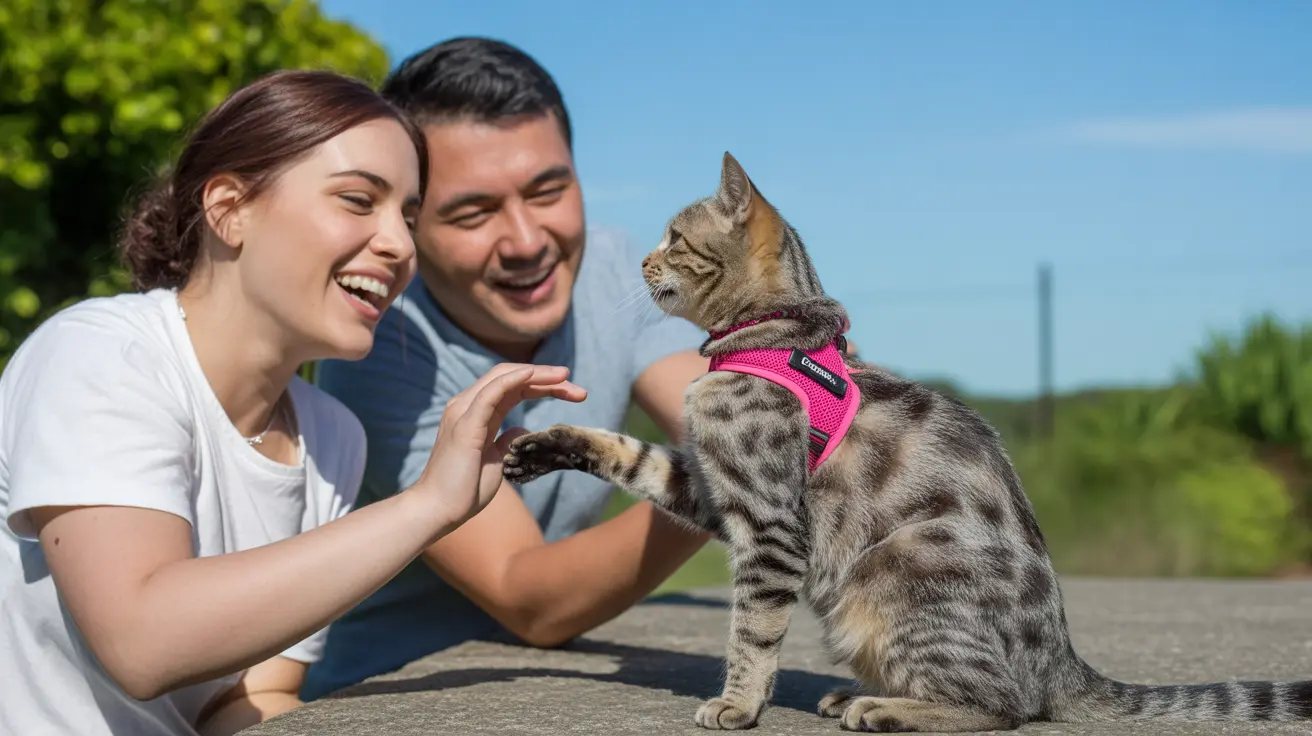Every October, Eckerd College transforms into a heartwarming celebration of the human-animal bond as students, faculty, and staff gather with their cherished pets for the annual Pet Blessing ceremony. This beloved tradition, held near the Feast of St. Francis of Assisi, showcases one of the most progressive pet-friendly college campus policies in the nation, welcoming creatures great and small to receive blessings from religious leaders of various faiths.
The Eckerd College pet blessing represents more than just a ceremonial event 6it's a testament to the college's understanding of how deeply pets impact student well-being and campus community. From dogs and cats to rabbits, chinchillas, ferrets, snakes, birds, and fish, the diversity of animals blessed each year reflects the inclusive nature of this unique educational environment.
Benefits of Pets in College Life
Research consistently demonstrates the profound impact pets have on college students' mental health and academic success. At Eckerd College, administrators have recognized these benefits of pets in college settings, integrating animal companionship into the fabric of campus life. Students report that their pets provide crucial emotional support during stressful periods, helping to reduce homesickness and anxiety that often accompanies the college transition.
Beyond emotional comfort, pets in student housing encourage social interactions and help build lasting friendships. Students naturally connect over shared pet experiences, creating study groups and social circles that might not have formed otherwise. The responsibility of caring for an animal also develops time management skills and provides a healthy routine that benefits academic performance.
Campus Pet Policy and Housing Options
Eckerd College's comprehensive campus pet policy sets clear guidelines while maximizing opportunities for student pet companionship. Small caged pets, including birds, fish, and small mammals, are permitted in all residence halls from the first semester, allowing new students immediate access to animal comfort during their adjustment period.
Larger pets like dogs and cats are welcomed starting in the second semester, though they're restricted to designated pet-friendly housing to ensure harmony among all residents. This thoughtful approach balances the needs of pet owners with those of students who prefer pet-free environments or may have allergies.
All pets must be properly registered with the college and meet strict inoculation requirements, ensuring the health and safety of the entire campus community. This systematic approach to pet care on college campus demonstrates the institution's commitment to responsible pet ownership.
Pet Life Program and Community Building
The college's Pet Life program extends far beyond basic policy enforcement, creating a comprehensive support system for student pet owners. Throughout the year, the program hosts various events that strengthen the bond between the campus community and their animal companions.
These inclusive college pet events include pet graduation ceremonies complete with humorous diplomas, costume contests that showcase creativity and school spirit, and practical workshops such as CPR classes for dogs. The program also addresses the more challenging aspects of pet ownership, offering grief counseling workshops for students dealing with pet loss.
Pet Life ambassadors and student councils provide peer-to-peer support, helping new pet owners navigate campus policies while promoting responsible pet care practices. These initiatives create a network of support that extends throughout students' college experience.
St. Francis of Assisi Pet Blessing Tradition
The timing of the Pet Blessing ceremony honors the legacy of St. Francis of Assisi, the patron saint of animals, whose feast day falls in early October. This spiritual dimension adds depth to the event, acknowledging the sacred bond between humans and animals that transcends denominational boundaries.
Religious leaders from various faiths participate in the blessing ceremony, reflecting the college's commitment to inclusivity and diversity. The event welcomes all pets regardless of species, from traditional companions to more unusual choices like snakes as pets on campus, demonstrating that every animal-human bond deserves recognition and celebration.
Frequently Asked Questions
What is Eckerd College's annual Pet Blessing, and when does it take place?
The Pet Blessing is a yearly event at Eckerd College held every October near the Feast of St. Francis of Assisi. It invites students, faculty, staff, and their pets of all kinds to receive blessings from various religious leaders, celebrating the special bond between humans and animals on campus.
Which pets are allowed on Eckerd College's campus and how does their pet policy work?
Eckerd College allows a wide range of pets, including dogs, cats, rabbits, chinchillas, ferrets, snakes, birds, and fish. Small caged pets are permitted in all residence halls from the first semester, while larger pets like dogs and cats are allowed starting the second semester but only in designated housing. All pets must be registered and comply with inoculation requirements.
How do pets benefit college students' emotional and social well-being at Eckerd?
Pets provide emotional comfort, reduce homesickness and stress, and encourage social interactions among students. Interaction with animals also helps students develop responsibility and time management skills while promoting physical activity, making pets an integral part of student wellness on campus.
What kinds of pet-related activities and traditions does Eckerd College offer besides the Pet Blessing?
Besides the Pet Blessing, Eckerd hosts other pet-inclusive events such as Pet Graduation with humorous diplomas, costume contests, CPR classes for dogs, pet-headshot sessions, and workshops on grief for pet owners. These events help build community and celebrate the unique role pets play in campus life.
How does Eckerd College ensure safety and harmony among diverse pets on campus?
The college enforces policies that separate small caged pets from larger animals via designated housing. Mandatory registration and vaccination compliance along with pet education programs run by the Pet Life department help maintain safety. Pet Life ambassadors and councils also support responsible pet ownership and address student concerns.






